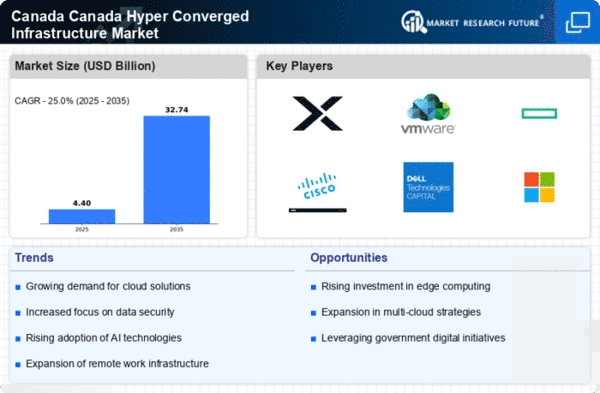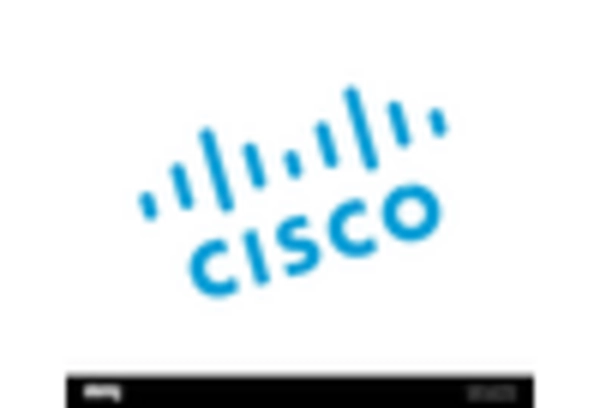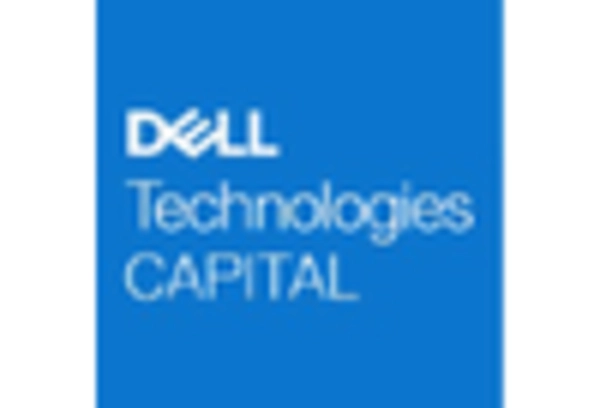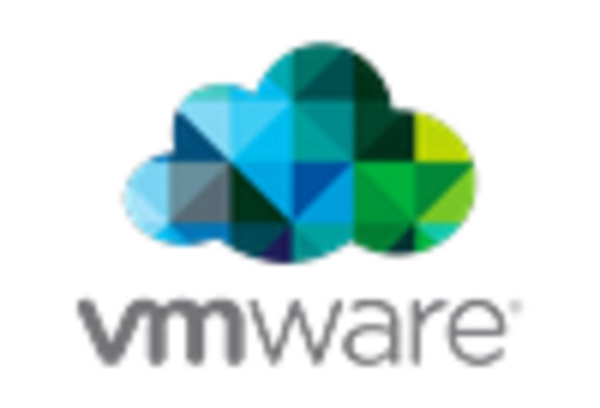Rising Data Management Needs
The increasing volume of data generated by businesses in Canada is a significant driver for the Hyper Converged Infrastructure Market. As organizations collect and analyze vast amounts of data, the need for efficient data management solutions becomes critical. Hyper-converged infrastructure provides integrated storage, computing, and networking capabilities, which streamline data management processes. This integration is particularly beneficial for sectors such as healthcare and finance, where data compliance and security are paramount. The market is expected to witness a surge in adoption as companies recognize the advantages of hyper-converged solutions in managing their data effectively, ensuring both accessibility and security.
Increased Focus on Cost Efficiency
Cost efficiency remains a critical driver in the Canada Hyper Converged Infrastructure Market. Organizations are continually seeking ways to reduce operational costs while maintaining high performance. Hyper-converged infrastructure offers a consolidated approach that minimizes the need for multiple hardware components, thereby reducing capital expenditures. Furthermore, the operational simplicity of these solutions leads to lower management costs. Recent analyses suggest that businesses can achieve up to 30% savings in total cost of ownership (TCO) by transitioning to hyper-converged systems. This financial incentive is compelling for Canadian enterprises, particularly in a competitive economic landscape where cost management is essential for sustainability and growth.
Growing Demand for Scalable Solutions
The Canada Hyper Converged Infrastructure Market is experiencing a notable increase in demand for scalable solutions. Organizations across various sectors are seeking to enhance their IT infrastructure to accommodate growing data needs. This trend is driven by the necessity for businesses to remain agile and responsive to market changes. According to recent data, the market is projected to grow at a compound annual growth rate (CAGR) of approximately 25% over the next five years. This growth is indicative of a broader shift towards hyper-converged solutions that offer flexibility and scalability, allowing Canadian enterprises to optimize their resources effectively. As companies increasingly adopt digital transformation strategies, the need for scalable hyper-converged infrastructure becomes paramount, positioning this market for sustained growth.
Support for Remote Work and Collaboration
The shift towards remote work has catalyzed the growth of the Canada Hyper Converged Infrastructure Market. As organizations adapt to hybrid work models, the demand for robust IT infrastructure that supports remote collaboration has intensified. Hyper-converged solutions facilitate seamless connectivity and resource sharing among distributed teams, enhancing productivity and collaboration. This trend is particularly evident in sectors such as education and technology, where remote access to resources is essential. The ability to deploy hyper-converged infrastructure quickly and efficiently allows Canadian businesses to respond to changing work environments, making it a vital component of their IT strategy.
Government Support for Digital Transformation
The Canadian government is actively promoting digital transformation initiatives, which significantly impact the Hyper Converged Infrastructure Market. Various programs and funding opportunities are available to encourage businesses to adopt advanced technologies, including hyper-converged infrastructure. This governmental support is crucial for small and medium-sized enterprises (SMEs) that may lack the resources to invest in such technologies independently. By facilitating access to funding and resources, the government is fostering an environment conducive to technological advancement. This initiative not only enhances the competitiveness of Canadian businesses but also drives the growth of the hyper-converged infrastructure market, as more organizations seek to modernize their IT capabilities.















